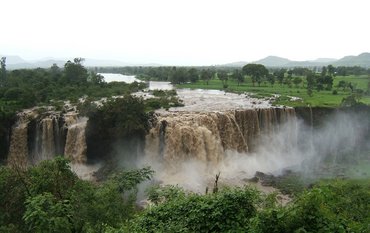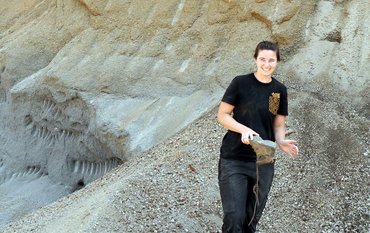New National Research Initiative in Coupled Biologic and Landscape Processes
01. 04.2014|Tübingen/Potsdam: A common Geoscience paradigm holds that the Earth surface is shaped mainly by climate (eroding soil) and tectonics (building mountains). The new Priority Program EarthShape: Earth Surface Shaping by Biota challenges this paradigm to explore how in addition biologic processes form soil, influence topography, and thereby shape the Earth surface. The program is funded by the German National Science Foundation (DFG) and allocates six million Euros over the next three years.
Professor Todd Ehlers of University of Tübingen Department of Geoscience and Professor Friedhelm von Blanckenburg of the GFZ German Research Centre for Geosciences, Potsdam, are coordinators the new national priority program research program. The EarthShape project explores how microorganisms, plants, and animals form soils and shape the Earth’s topography. The involved interactions are still poorly understood.
New scientific technology now allows to identify their role. Research into biologic controls on topography is particularly important for understanding how future climate and biologic changes will impact the Earth’s surface. The project will enable scientists from around Germany to work together in common study area of coastal Chile. „We have chosen the Chilean Coastal Range because it features spectacular gradients in climate and its biologic expressions” sais Todd Ehlers. These gradients we will explore in an innovative scientific collaboration between the geosciences, ecology, soil science, hydrology, microbiology, and geography “.
Since years the GFZ is operating a tectonic observatory in Chile surveying the plate boundary between the Pacific and South America. „It is a natural laboratory to study how biology and topography interact“ said von Blanckenburg. “The project has a strong collaboration with leading Chilean scientists from several disciplines, and involves a new collaboration between German Universities and at least four Helmholtz Research Centers."
Professor Todd Ehlers came to Tübingen in 2009 from the University of Michigan, USA, where he was formerly a professor. He heads the Earth System Dynamics research group. Professor von Blanckenburg leads the Earth Surface Geochemistry group at GFZ Potsdam and is a professor at FU-Berlin.
TheDFG German National Science Foundation awards priority programs like this to provide a community-driven mechanism for research on the cutting edge of Science. The program aims to fund large research programs with multiple institutions with an emphasis on collaborative science between disciplines.
A photo in a prinatel reolution is found here.
Caption: In a tropical highland roots reach towards the rock layer to extract nutrients, thereby forming soil. (Photo: Friedhelm von Blanckenburg, GFZ)
Kontakt:
Prof. Dr. Todd Ehlers
University of Tübingen
Mathematisch-Naturwissenschaftliche Fakultät
Fachbereich Geowissenschaften
Tel: +49 7071 29- 73152
todd.ehlers[at]uni-tuebingen.de
Kontakt:
Prof. Dr. Friedhelm von Blanckenburg
Deutsches GeoForschungsZentrum GFZ
Telegrafenberg
14473 Potsdam
Tel: +49-331-288 28 50
fvb@gfz-potsdam.de







![[Translate to English:] Both scientists sitting on stools in front of a wall of books in the Telegrafenberg library](/fileadmin/_processed_/6/6/csm_Buiter_Castell_DORA_4_e87cb1ea18.jpeg)
![[Translate to English:] Gruppenbild mit 4 Personen](/fileadmin/_processed_/8/d/csm_20241017_GFZ-Emmerman-Medal-005_web_reinhardtundsommer_21a414fa4a.jpeg)






![[Translate to English:] Ice landscape with five red tents](/fileadmin/_processed_/8/9/csm_Zeltlager_auf_dem_Eis_Urheberin_Jenine_McCutcheon_5ced2d523b.jpeg)


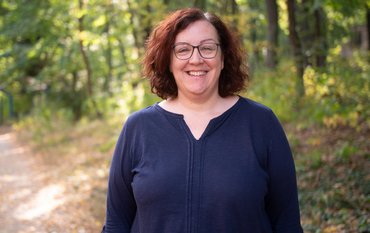
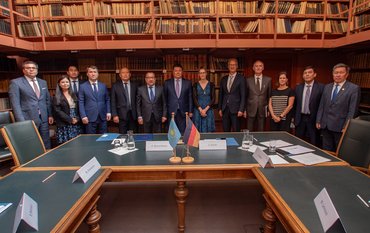

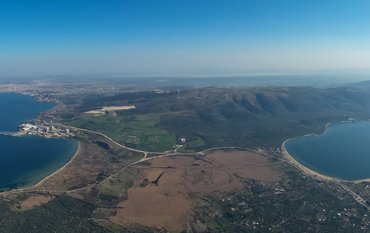
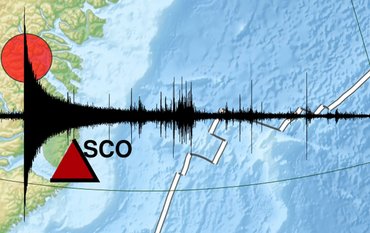
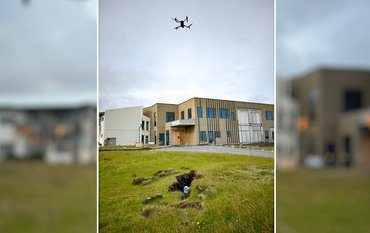
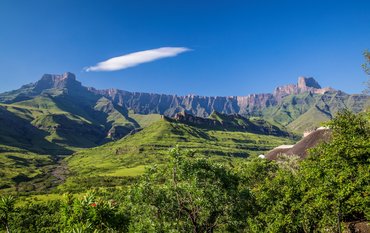
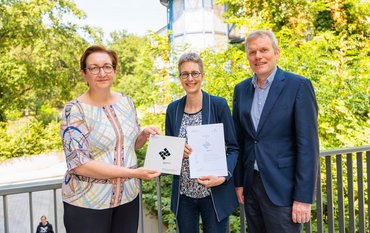

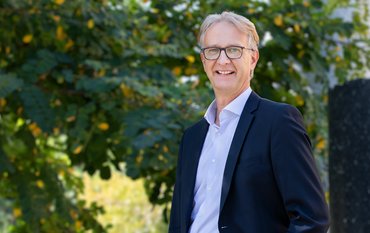
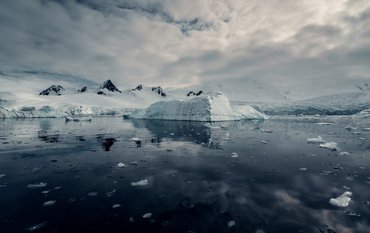
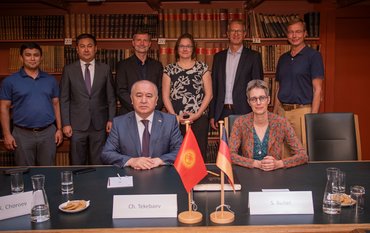
![[Translate to English:] Group photo with 7 people in front of a new metal plant in a large laboratory hall.](/fileadmin/_processed_/0/4/csm_20240628-GFZ_Einweihung_Triax-Anlage-PRESSE_Abb1_040_c-Bahlo-GFZ_187906cb48.jpeg)
